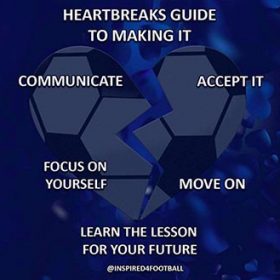Setting goals is one of the most important steps to development. Be this development in football or anything else. Almost every day we live is geared around setting and achieving goals.
When we asked the ProFormance players at the start of their season, very few could identify clear goals, more they would target the number of goals they wished to score. You may expect that to be the response from young children, who don’t quite get the context of the question. BUT this does identify a way ProFormance can educate their players to help their development, even if we can add 1% by visiting ‘Goal Setting’ each season.
Setting goals at the most basic level will enable you to keep focus and enable you to constantly improve.
At the most basic level in football, a lot of the goals we may get back from young players is, winning a game, scoring a goal, keeping a clean sheet or a number of passes made. My issue with this is that not all of this is completely controllable. Especially winning, and scoring. When we were away in Paris on tour last season, some of the goalkeepers, were the best performers across the tour, but the conceded many goals, despite their performances, they could not control as an individual the possibility to keep a clean sheet.
As we go through this season, we want to enable the players at ProFormance, and anyone who takes interest in this blog, or our social outputs, to be able to set controllable goals.
For the players who we work with there are three types of goal they should consider setting.
- Team Goals – usually set by the coach. It is important for a coach to document the goals for his team. These may be considered to be a little out of their total control but it will enable the ‘team’ to move in the same direction.
- Individual Goals – key for players to set themselves goals. This will enable you to develop towards something.
- Small Goals – when setting your main goal, consider each step to acheive that goal. Set small goals to enable you to climb the ladder.
The most important focus for us, are the individual goals and the small goals, which take you step by step to your main indivudal goals.
The acronym SMART is the most well know goal setting technique and encourages you to make goals specific, measurable, attainable, realistic and time-bound. We agree with this;
- SPECIFIC – What do you want to achieve? Questions to help you answer this should include, where? how? when? and for who this is for
- MEASUREABLE – How will you know when you reach your goal? A test? A trial? A sound?
- ATTAINABLE – Can this goal really be acheived by you? If you do not have the time, money or talent to achieve your goal, you will fail!
- REALISTIC – Will your personality or personal circumstance stop you achieving your goal. Do you actually want to achieve your goal? If your goals may change due to your personal circumstance then it’s not the right goal.
- TIME-BOUND – I can be certain that having a deadline, makes me work in a more defined way! Make sure your goals are time specific.
I would add two things to this, I know it would reuine the acornym but ……….
- WRITE IT DOWN – Write your goals down. Whether you’re a bit of an artisit, or just want to put it on a plain piece of paper. Write the goals down and the steps it will take to achieve your goal. Keep it somewhere you will see it and use it as a point of reference as much as possible.
- WITH SOMEONE ELSE – For the players in our programme we would encourage you to set your goals with your parents. NOW this is not, for the parents to influence, but for your parents to understand your goals and how they can support you. You can also set your goals with your coach, again, this is not to be influenced by the coach.
As we move forward with the support of our players in setting and achieveing their goals we will be encouraging them to take the following steps;
- Write your goals down
- Take the first step
- Develop your skills
- Work on your mindset – positivity
- Set a clear deadline
- Continue to the end
- Reward yourself
NOW GO DEVELOP!



